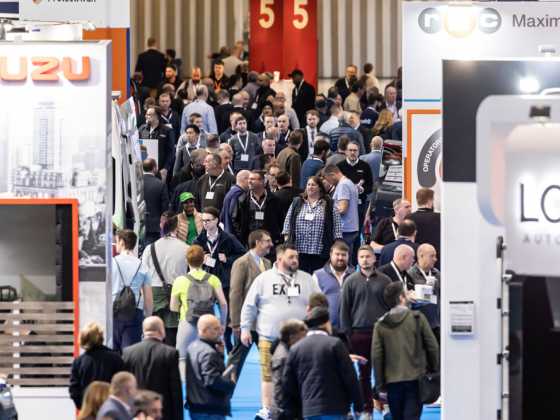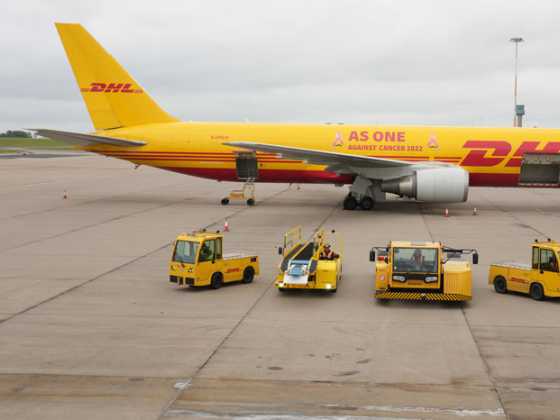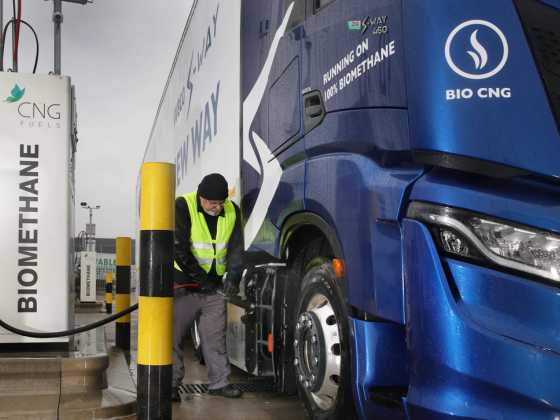Finding other ways to pay
Leasing is a popular way to fund new vehicles as it does not require upfront payment. Despite this, why do some fleet operators struggle on with old vehicles?
 Written by Paul Harrison head of motor finance at the Finance & Leasing Association
Written by Paul Harrison head of motor finance at the Finance & Leasing Association
The road transport sector is one of the heaviest users of asset-backed finance in the UK. Companies are increasingly turning to asset finance to fund their vehicle fleets – whether purchase or lease agreements – because funding is affordable and tailored to specific business needs.
Under a lease agreement, the leasing company (lessor) buys and owns the vehicle. The customer, or lessee, then hires the vehicle, paying rentals normally over a fixed amount of time. At the end of the contract, the customer – depending on the exact agreement entered into – may have a choice of extending the lease, buying the vehicle outright or simply returning it to the lessor.
Hire purchase, known as HP, is a finance facility which gives customers the option to own the vehicle outright at the end of the agreement. The business normally pays an initial deposit, with the remainder of the balance (value of the vehicle) plus interest repaid over a typical period of two to three years. Once all repayments are made, the customer is given the option to buy the vehicle and become the legal owner by paying an Option to Purchase Fee or to return the vehicle.
The Finance and Leasing Association (FLA) is the leading trade association for the asset and motor finance sectors in the UK. In 2009, our members provided £5.2 billion of finance to businesses for the purchase of cars and £3.3 billion of business finance for commercial vehicles, although this was down 25 per cent and 30 per cent respectively on 2008 volumes. Around £11 billion of finance was provided in 2009 by FLA members to customers to buy cars.
The affects of the downturn
The recession has had a significant impact on the fleet sector. Not just through reduced business confidence – reflected in fragile demand for new vehicles – but greater uncertainty has damaged business planning. Cars and commercial vehicle fleets represent a significant investment. So it’s no surprise that businesses are delaying big spending decisions until the economy looks rosier. The FLA’s figures paint a stark picture. In 2009, business finance provided by FLA members for new passenger cars dropped by almost one fifth – equivalent to more than 70,000 vehicles.
For many fleet operators, leasing is the most common way to fund new equipment as it does not require payment upfront – particularly attractive in current economic conditions – and does not mean businesses take on any residual value risk. Asset finance helps operators to replace older vehicles as and when required – increasing business flexibility and efficiency, and reducing operating costs and investment.
Despite these benefits, many fleet users – faced with cash-flow difficulties – will inevitably try to struggle on with old equipment. It is important, therefore, that the government does everything it can to ensure that its support to businesses – especially SMEs – extends to asset finance for vehicle fleets.
Recent research shows that 16 per cent of SMEs report that a lack of access to funding to use for investment in equipment has meant that they cannot replace important equipment, and are having to eke out life from what they already have. Six per cent of businesses also reported that a lack of accessible funds posed a significant risk to whether they could continue at all as an enterprise.
The need for government support
So before the Election, the FLA lobbied to ensure that government support schemes such as the Enterprise Finance Guarantee Scheme are extended to leasing, so that businesses operating fleets that might not normally be able to raise finance can do so. We have also called for more generous tax capital allowances, to reduce the cost of investing in new vehicles through leasing.
We have called for tax allowances to be extended to leasing of assets rather than just purchase as they currently apply. Many companies choose to lease because they do not have the funds available for investment. If advanced allowances were able to be claimed by the lessor, they could be passed on as savings to the customer through cheaper repayments. The FLA will continue to lobby the new government on these important issues.
The Green Vehicle Boom
But leasing is not just about capital allowances and finance products. For the last few years, green technology has become more important, and something that lessors are now fully engaged with. Businesses need to reduce carbon emissions from fleets by investing in vehicles with fewer emissions. In many cases, electric vehicles will be the way forward – and as part of the FLA’s work we have pushed for specific allowances for businesses investing in green technology and green fleets.
The FLA is making a case on behalf of the leasing industry for the government to bring forward incentives for investment. The task is made easier in that all political parties are committed to green investment to cut carbon emissions.
With the right funding models, the UK could be a leader in carbon reduction. And leasing is a natural funding model for users of low-carbon technology. Using private sector funds, it allows users to pay for new, environmentally-friendly fleets while they enjoy the resulting cost savings. It can give the user the flexibility to change their equipment after an initial period of (typically) three to five years. It can be secured largely or entirely on the vehicle being financed, and the funding is guaranteed for the life of the agreement.
Current tax incentives for investment in low-emission business cars are helpful but will be insufficient to persuade more than a very small proportion of Britain’s four million businesses to invest in green technology. They need to be combined with incentives to invest in this technology through leasing.
For example, special tax allowances or grants for businesses which lease low-carbon equipment would enable many businesses to obtain new equipment and pay for it once they start generating or saving energy. The cost of finance could also be reduced, and availability improved, if the government participated in part of the risk of new lending, in return for a fee.
By working with the leasing industry, the government can make incentives for investment in low-carbon equipment more effective, taking green technology into the mainstream of business investment. The UK could then become a leader in the adoption of carbon-reduction equipment, bolstering the UK’s capabilities in innovation and manufacturing.
Accounting for leasing
As well as leasing moving up the green agenda, there are also changes on the horizon for businesses using leasing and the way they account for those leases.
There is often confusion, particularly among smaller businesses, about how to account for leases. This is likely to affect incorporated businesses (limited companies) as they are required to prepare annual accounts using accounting standards set by the regulators. Changes are afoot and – although not the most exciting of topics – they will be of significant importance to the fleet industry.
Under the current accounting rules, companies purchasing fleet vehicles using hire purchase, and those leasing on finance leases (which are typically lease agreements for over five years), show the value of the vehicles in their accounts. Companies leasing on operating leases (which are typically for less than five years) do not.
The new rules may be seen as unnecessary red tape, to be suffered at considerable expense or ignored. Even for larger businesses, with in-house accountants, the work involved to collect and assess data on possibly hundreds of vehicles across multiple depots would be significant and costly.
It is clearly not sensible to apply the same procedures to one or two delivery vehicles in use in a small business, and to a fleet of thousands of vehicles by one of the largest distribution companies. To deal with this, simplified procedures are needed for all but the largest leases.
It is true that there are many challenges ahead, but the FLA is working with its members to ensure that lenders can fully contribute to the economic recovery. At the time of writing, the FLA’s latest figures showed a 30 per cent increase in the number of business cars financed in March 2010, when compared with March 2009. It may be that confidence is beginning to return to the fleet industry, and that we will start to see higher levels of investment as businesses work their way out of the recession and invest in new equipment. The FLA will continue to lobby for measures which allow the sector to thrive.
For more information
www.fla.org.uk






